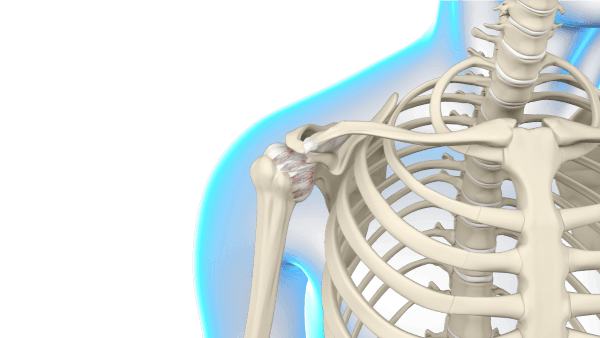Frozen Shoulder Treatment
Adhesive Capsulitis of the Shoulder Otherwise known as frozen shoulder
What is adhesive capsulitis?
Adhesive capsulitis occurs when the shoulder capsule becomes inflamed and stiff. The shoulder capsule surrounds the shoulder joint and the rotator cuff containing synovial fluid to lubricate the joint.

Adhesive capsulitis can be broken down in to three stages – freezing, frozen, and thawing. During the freezing stage, pain often comes on gradually and shoulder range of motion begins to decrease. This stage typically lasts 6 weeks to 9 months. The next stage is frozen. During this stage, the pain often improves but the stiffness continues to worsen increasing range of motion limitations. The third and final stage is thawing. During the thawing process, the shoulder begins to loosen and range of motion works back to normal. This can take 6 months to 2 years without treatment.
Causes
There is no known specific cause for adhesive capsulitis but there are certain conditions that put a person at higher risk of developing it.
- Age – People over 40 are at greater risk of development
- Gender – Women are often plagued with adhesive capsulitis more than men
- Systemic Diseases – People who have diabetes, thyroid conditions, cardiovascular disease, tuberculosis, and Parkinson’s are at a great risk.
- Immobility – Recent injury or illness that requires the arm to be immobilized
Treatment
It’s best to see an orthopedic physician when you think you may have frozen shoulder. Orthopedic physicians are most knowledgeable in treating musculoskeletal related injuries or conditions such as frozen shoulder. Together you and your physician can determine the best treatment for you and your lifestyle which may include any or all of the treatments listed below.
- X-rays – your physician will likely order x-rays to rule out fracture, osteoarthritis, calcification, etc.
- Medications – Your physician may suggest over the counter pain relievers or anti-inflammatories such as Aleve (naproxen sodium), Advil (ibuprofen), or Tylenol (acetaminophen) for mild cases. In more persistent or chronic cases of frozen shoulder, your physician may prescribe a short course of steroids such as a medrol dosepak and/or prescription strength anti-inflammatory such as mobic (meloxicam) or voltaren (diclofenac sodium).
- Corticosteroid Injections – your physician and you may decide you are a good candidate for a steroid injection into the shoulder joint. The injection most often performed for frozen shoulder in the glenohumeral injection which means injecting directly in the shoulder joint. The injection will contain a numbing agent such as lidocaine for short term pain relief and a steroid to reduce inflammation within the joint.
- Physical Therapy – Working one on one with a physical therapist will help your shoulder regain range of motion quicker.
- Surgery – If you have exhausted all conservative options and are still struggling, your physician may suggest arthroscopic surgery. Most patients obtain relief with conservative measures and don’t have to undergo surgical options. During surgery, your orthopedic surgeon will make 2-3 small incisions and using a camera guided probe to assess the joint. Using other specialized tools, your surgeon will release the capsule of your joint, thus restoring motion

